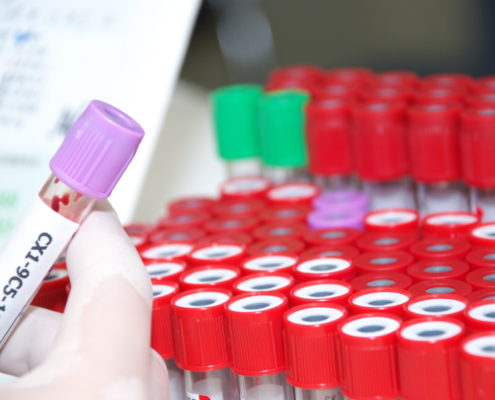14 June 2023 | Wednesday | Analysis

Image Source | Public Domain
This study, conducted by experts from Aquarius Population Health Limited in London and the University of Manchester, presents valuable insights into the cost-effectiveness of self-sampling for routine human papillomavirus (HPV) primary cervical cancer screening using the Colli-Pee® UCM® self-collection device.
The study's noteworthy findings suggest that self-sampling with the Colli-Pee® device could offer a more affordable alternative to clinician-collected sampling and other self-sampling methods. This has the potential to significantly expand access to cervical cancer screening for underserved and rural populations on a larger scale.
The health-economic research employed an innovative cost-benefit analysis model, utilizing real-world evidence from England’s primary HPV NHS Cervical Screening Programme (NHSCSP). The study compared three sampling approaches using a deterministic decision-tree model. The biocomputational analysis simulated a cohort of 10,000 individuals representative of the 400,000 people with a cervix aged 25 to 64 in England’s NHSCSP during 2020 and 2021. The three sampling strategies evaluated were routine clinician-collected cervical sample (identified as the most expensive option), self-collected first-void urine via the Colli-Pee® device (the least expensive option), and self-collected vaginal swab (the second-most expensive). The Colli-Pee® first-void urine collection device evaluated in the study is manufactured by OraSure's Belgium-based subsidiary, Novosanis.
“OraSure is committed to delivering user-friendly tests and collection devices that can be conveniently used in decentralized settings. The Colli-Pee® collection device has the potential to reduce cost to the healthcare system, expand access to screening, and eliminate an invasive, sometimes painful, procedure for women,” said Carrie Eglinton Manner, President and Chief Executive Officer of OraSure. “We are excited about the potential of the Colli-Pee® UCM®device in improving access to cost-effective HPV screening and enhancing the patient experience worldwide and are actively engaged in multiple clinical research and commercial collaborations to establish first-void urine as a validated sample type for HPV screening, women's health therapeutics, and the detection of innovative oncology-related biomarkers,” she said.
According to the World Health Organization, HPV is responsible for over 99 percent of cervical cancer cases. The National Cancer Institute reports that half of new HPV cases occur among unscreened women. The UK-based study found that, if self-screening led to a 15 percent increase in women accessing the HPV cervical cancer screening program in England, along with an additional 50 percent transition to self-screening by women currently undergoing screening in physician practices, the NHSCSP could potentially save £19.2 million per year through minimally invasive first-void urine self-screening or £16.5 million per year through more invasive vaginal swab-based self-screening. These figures highlight the significant economic benefits associated with implementing self-sampling methods.
Overall, this pioneering study underscores the potential of self-sampling with the Colli-Pee® device as a cost-effective solution for HPV cervical cancer screening. With its substantial impact on improving access to screening and reducing healthcare costs, it holds great promise in advancing women's health globally.


© 2025 Biopharma Boardroom. All Rights Reserved.